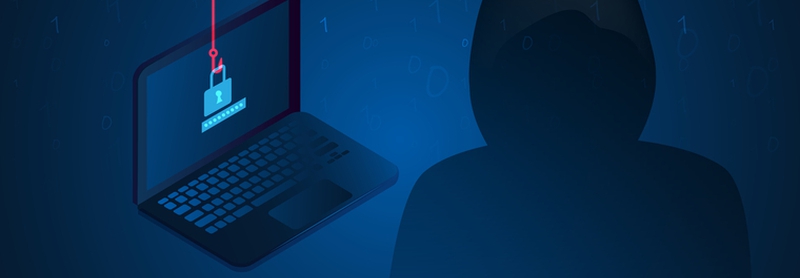How to recognize and avoid fraud and phishing attempts? Online protection guide for Skrill and NETELLER clients.

Now that we spend more time online, we are more likely to fall victim to online fraud or a phishing attempt. Do you know how to recognize fraud and phishing scams? If the answer is no, then this is an article you should read.
Here, we explain how to stay safe online. There are more methods to jeopardize the online safety that you can imagine. By recognizing some most used fraud attempts, you will train your guts to recognize various shades of online fraud.
Most probably, you already encountered at least two fraud attempts. Suppose you have never fallen for the trick, well, good for you. The majority of users have fallen in the trap, many of them more than just once.
We'll be looking at phishing emails, spear phishing, texts, and irritating calls.
Yes, we all know them well. They land in our inboxes, emails containing phishing links. Fraudsters send them to a broad database of people, hoping receivers will open the link. By opening phishing emails and links, your devices might end up getting scanned for vital information or give access to phishers to access your computer, smartphone, or other connected devices.
Spear phishing is probably the most invasive method among online frauds. Internet users report everything from someone using their name, profile picture, email, title, and postal address. The fraudster will learn everything about you to impersonate you online.
Fraudsters do their research well and probably use your identity in spaces you don't usually appear. For example, if you don't have a Tinder profile, they won't create one with your information. Fraudsters will impersonate you in places where you usually don't appear, and by that, minimize the risk to collide with you.
Never. Service providers, online brands, payment providers will not ask you to provide your information via text. Always remember that, and consider such a request a scam. If you receive an invitation to click on a link in the text message, you can be 99% sure that it is a case of online fraud.
Be very alert if this happens. You have to know that customer services are more or less limited to incoming calls. It is very unusual for an account manager to call to confirm your account or personal information. Never share your log-in information or bank records, as you might end up a fraud victim. For example, if they introduce themselves as the competitor brand of the services you are using, ask them where they got your information and who gave them explicit permission to contact you for marketing purposes.
Skrill and Neteller, digital ewallets, provide a list of helpful questions and answers for situations that don't feel right.
| If not, it may be a scam. |
| If you can't get confirmation, it's a phishing attempt. |
| Use caller ID, check the email address or search the number that sent it to you. |
| You can hover over links to check what website it will take you to. |
| Never download an attachment unless it's from someone you recognize. |
| Reputable organizations will never ask for these without contacting them first. |
| Spelling and grammar mistakes are a telltale sign of phishing attempts. |
| Often, phishers will try and get you to act with a sense of urgency. |
| Source: NETELLER |
You should also be aware of fake advertisements on social media and Google. This is another of fraudster's favorite resort, as we are not usually alert when it comes to paid content. The majority of users trust ad space providers to pre-approve commercial content.
When you find a suspicious email in your inbox, check the sender's email address. Often, the email address will mimic the original brand, but it will not a match. The fraudsters can copy the logo and produce a similar email design, but not the sender's address.
Recently, Paysafe has detected impersonations of Skrill, NETELLER, and Paysafecard. Especially when an email appears to be from a payment brand, double-check the address before clicking any link. Try to make it a habit, especially if you were not expecting an email from them.
With Skrill and Neteller, try to use your own devices to access your account and be very careful to enter the domain yourself. If you see an add and suddenly remember to check your Skrill balance, do not click the banner ad to take you to the Skrill website. Instead, enter Skrill website address and be sure that you are not directed there via a link. When you are on the site, recheck the address. Just to be sure.
Skrill and NETELLER users:
Paysafe will never ask you for confidential details (like card details or your password) via email, telephone or text message.
A security code will be sent to your email or phone only if you requested additional verification for a transaction.
Fraud or Not Fraud? It is worth double-checking the website address, sender's email. A call from Skrill or Neteller? Probably it is not. Never ever give out personal information and ewallet account data if you are not sure about who you are communicating.
If you are working with an affiliate, make sure you have a trustworthy relationship. A Skrill and Neteller affiliate can provide direct customer support, help you with upgrades, and include you in promo deals. You should always have an open channel with your affiliate. If they are not able to communicate with you or don't have customer support it is best to find a more reliable path. Affiliates, looking to for a Skrill and Neteller affiliate program, can talk to Paynura Affiliate Manager.
If you follow the above advice, you have already substantially decreased the risk of falling victim to an online scam. Just be alert, when something fishy comes along.